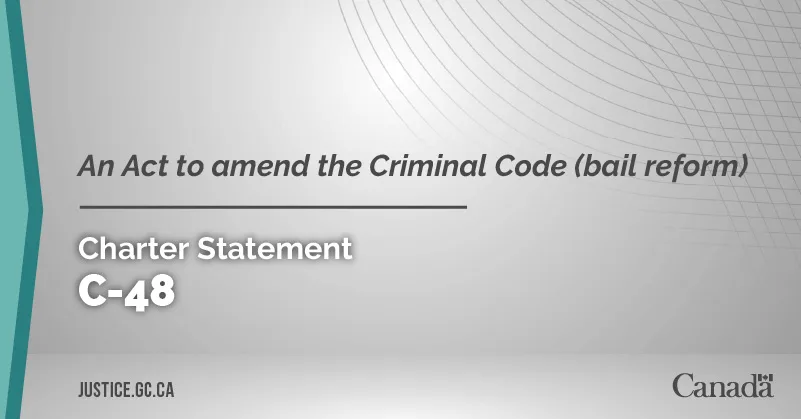Ottawa – Former Bill C-48 has received Royal Assent and is coming into effect tomorrow. On December 5, 2023, the Government of Canada’s amendments to the Criminal Code’s bail provisions to promote community safety and reinforce public confidence in the administration of justice received Royal Assent. The reforms come into force on January 4, 2024.
The amendments make targeted changes to the Criminal Code’s bail regime to address serious repeat violent offending with firearms, knives, bear spray and other weapons. The changes made at the bail stage will also address the enhanced risks posed by intimate partner violence (IPV). The changes seek to improve the safety of people and communities across Canada.
The changes were developed in close collaboration with all provinces and territories, including at a special meeting of Federal-Provincial-Territorial Ministers responsible for Justice and Public Safety on March 10, 2023. The changes are also informed by engagement with other partners and stakeholders, including law enforcement, community organizations and Indigenous partners. These changes respond directly to calls for reform from provincial Premiers and the policing community.
The reforms are only one part of a broader solution to ensure the objectives of the bail system are being met. Canada’s bail system is the joint responsibility of federal, provincial and territorial governments. The federal government establishes the criminal law, within the bounds set by the Charter of Rights and Freedoms. Provincial and territorial governments are responsible for the administration of justice, including most bail hearings and enforcement of bail conditions, as well as for most facilities where people awaiting trial are held.
Law reform is an important part of maintaining and enhancing public safety, but programs, policies and investments are also critical in fostering safer communities. This includes investments to enhance bail enforcement, as well as improving access to housing, mental health and addictions supports. All levels of government agree that improved data collection is necessary to fully understand how the criminal justice system, particularly bail, operates.








